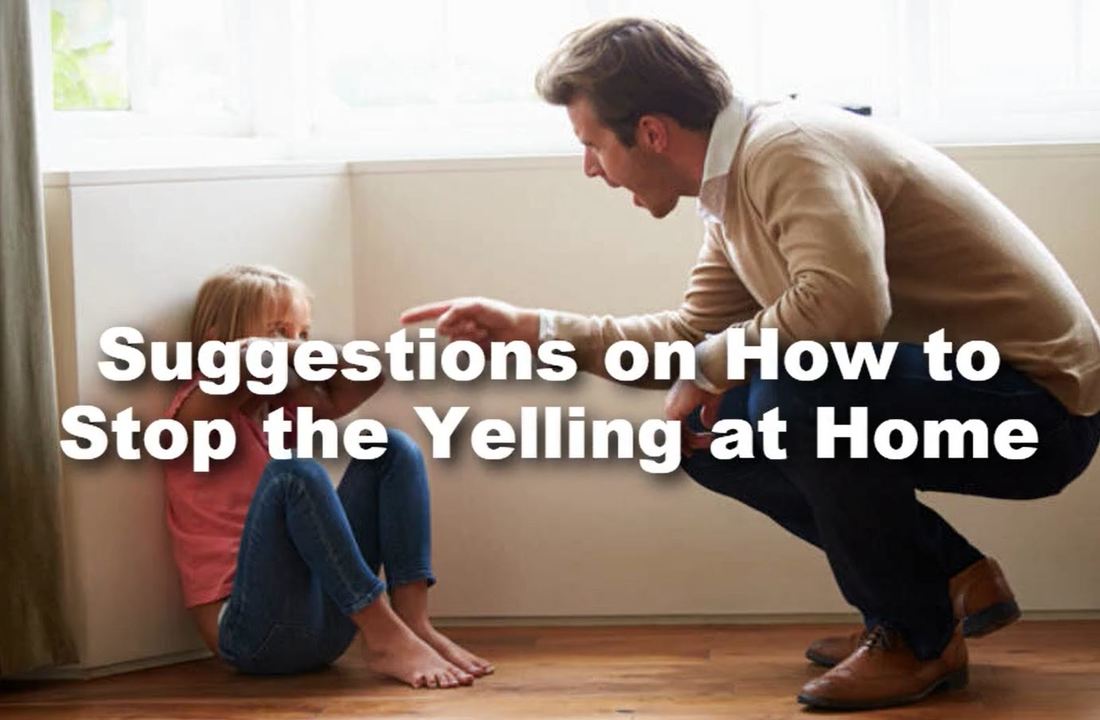|
Have you ever been yelled at as an adult? Maybe it was in traffic or when you accidentally spilled something on the big mean guy in front of you at a ball game. Whatever the situation, how did it make you feel? Did you feel your face get red? Were you embarrassed or angry? After the fact, even hours later, did you feel vengeful or keep thinking of things you could have or should have yelled back at the person? Now, rewind to the last time you yelled at your child. Do you think they feel much differently? Do you think raising your voice or using harsh words helps or hurts the relationship with young people?
The Bible says in Ephesians 4:29-32, “Let no corrupt communication proceed out of your mouth, but that which is good to the use of edifying, that it may minister grace unto the hearers. 30 And grieve not the holy Spirit of God, whereby ye are sealed unto the day of redemption. 31 Let all bitterness, and wrath, and anger, and clamor, and evil speaking, be put away from you, with all malice: 32 And be ye kind one to another, tenderhearted, forgiving one another, even as God for Christ’s sake hath forgiven you.” There is powerful truth in this passage regarding communication in general especially at home, but let’s focus for now on the word “clamor” in verse 21. The word comes from a word that means to croak (as a raven) or scream, that is, shriek, cry (out). This unfortunately describes most every one of us as parents at one time or another in the way we speak to our kids. We lose control because we had a long day, our kids get under our skin, they disobey or disrespect one too many times and instead of responding firmly in love, we respond firmly in anger, clamor and evil speaking. Instead of solving the problem, we makes it worse. Here are 10 suggestions for dealing with yelling and/or its aftermath. 1. If you’re guilty, make it right. If you know you’ve been wrong in this area, let your child know you were wrong, you feel badly about it and you are going to take steps to correct this issue. This may be difficult, but it will help you and your child. Make sure you also go to the Lord and ask for forgiveness and help as well. He will not only forgive us but strengthen us to overcome our sin. (I John 1:9) 2. In addition to making it right, communicate with your child about the situation. Tell them in a way that fits their age and understanding that you struggle with anger and yelling at times. Let them know you are praying for victory and ask for their help. Let them know what actions on their part can cause you to struggle more. Don’t blame them or make them feel your sin is their fault (it’s not) but communicate that their actions do make a difference. 3. Give advance warning when possible to avoid the yelling. Let your child know that their actions are elevating your emotions in a negative way and that you feel like you’re going to explode. Let them know when possible that you both need to work to defuse the situation immediately. Let them know that you may need to walk away and cool down. Tell them that if you do that, it is your way of preventing a yelling episode. 4. Pray. Ask God right there in the heat of the moment to give you strength to control your words and voice. Step away and cool down if possible. 5. Envision a stage. God sees your actions, but imagine that a group of your peers or co-workers are watching you and your child on a stage. Would your yelling embarrass you in front of them? Perhaps it will help to envision them as being there. 6. Remember you are the parent. Yelling and sparring with words reduces your level of authority and respectability. You are the adult. Remember to act like one. When you yell, it makes it easier for your child to yell back because you seem more like a sibling or peer. 7. Memorize a passage of Scripture together with your child. Agree that it is wrong for both of you to participate in these sins of words and voice. A joint memorizing project will help with accountability and relationship building. Ps. 119:11 says, “Thy word have I hid in mine heart, that I might not sin against thee. You can simply “Google” “Bible verses on controlling your words” or “Bible verses on controlling the tongue” for some good suggestions. 8. Have your husband or wife help. Be accountable to someone regarding your words and voice. A husband or wife is perfect. If that doesn’t fit in your particular situation, ask your pastor, pastor’s wife or a close friend to keep tabs on you and ask how you’re doing weekly. Ask them to pray with you about the struggle. 9. Thank the Lord your child is safe and healthy. There have been times I felt myself becoming irritated with my child and feeling like exploding. It helped to envision them sick or hurting and thank the Lord that they were actually ok, safe and well. This filled me with more compassion and thankfulness which helped defuse the anger and tone down the situation. 10. Read a good book on Words. A new book is currently available by Paul Tripp called “War of Words.” You can order it here and watch a short helpful video here. So is there ever a reason to yell? Sure. Perhaps to get attention, to create urgency or emphasis, but yelling with sinful anger is never good. Like any sin, it always makes things worse. At Maranatha Baptist Academy, our faculty and staff are Christian parents too. We know what it is like to not always be the type of parent you want to be and we work at it just like you do. We also know the importance of nurturing a child in a godly way. Our goal is to partner with you and your family to help with your goal of raising well educated godly children. Learn more about our school.
1 Comment
|
Author and EditorsFaculty or Staff Members of Maranatha Baptist Academy Archives
April 2024
Categories |
|
Maranatha Baptist Academy
TELEPHONE NUMBER
(573) 336-5972 PHYSICAL ADDRESS 200 Acorn Dr Saint Robert, MO 65584 |
MARANATHA BAPTIST ACADEMY
A MINISTRY OF MARANATHA BAPTIST CHURCH Learn More About our Church Here. Visit our Church Facebook Page Here Quick School Links: Prospective Parents Academics The Academy's Journal Parent's Peace Digest Student Life Calendar and Events Non-Discrimination Policy |
© Maranatha Baptist Academy - All Rights Reserved
Proudly Powered by Purpose Launch Advancement LLC





 RSS Feed
RSS Feed





